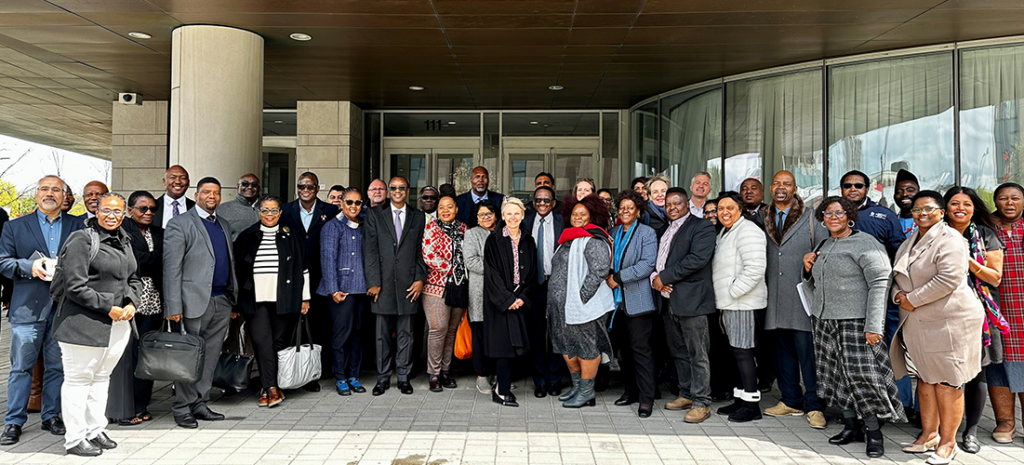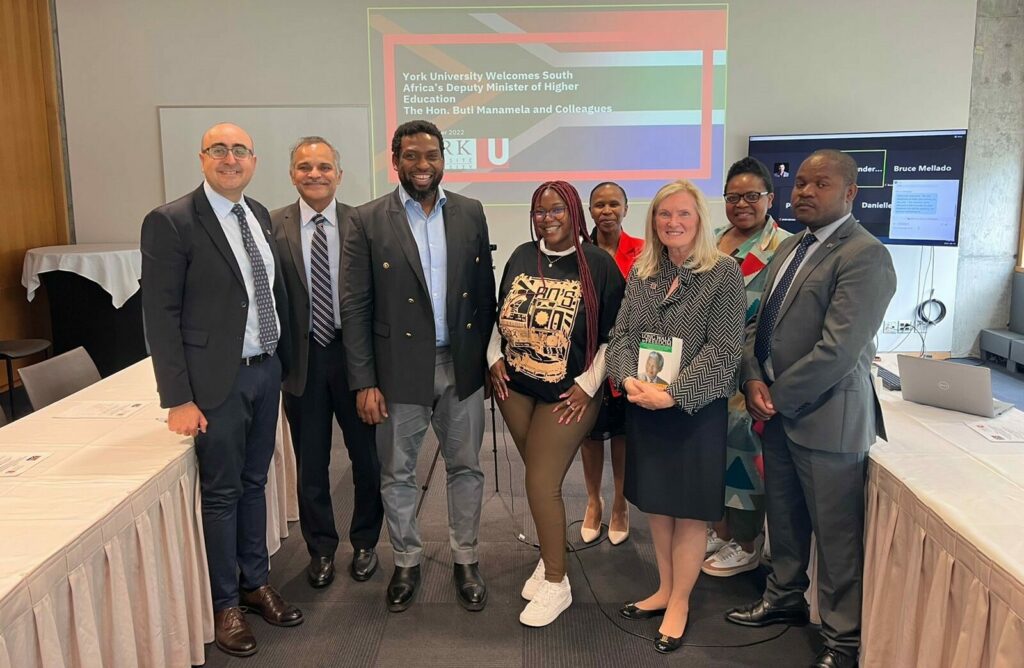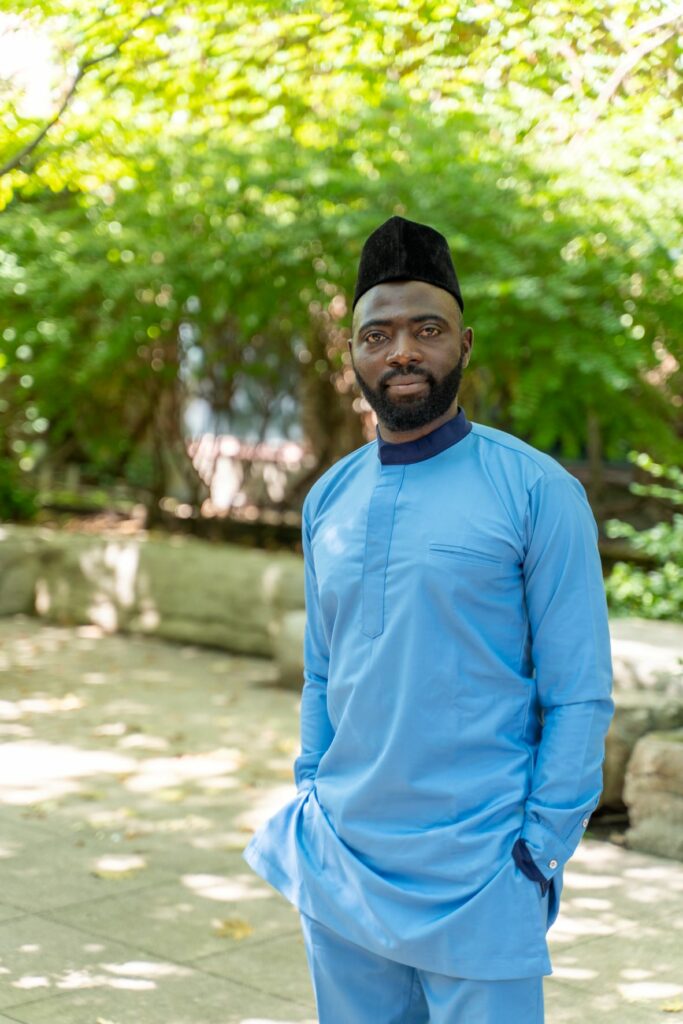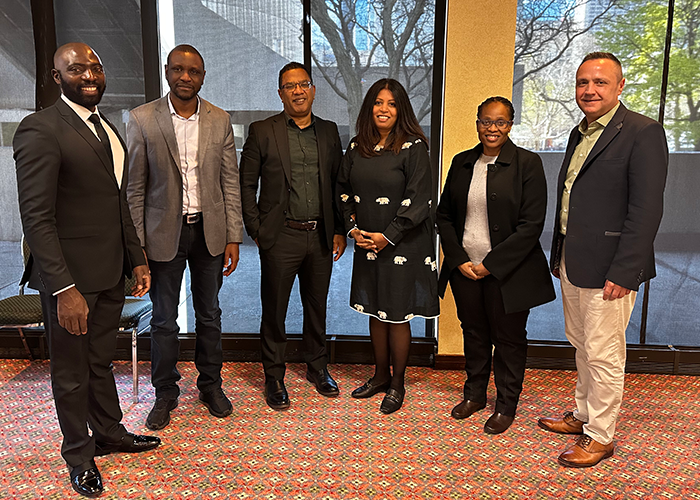York University hosted two major institutional conversations with South Africa during the 2022-23 academic year to explore opportunities for future partnerships.
In late April, the University hosted a delegation of South African university vice-chancellors and deputy vice-chancellors for research, the CEO of Universities South Africa and representatives from the country’s National Research Foundation.

The delegation was part of a much larger visit by South African research councils and South African universities to Toronto and Ottawa, organized by South Africa’s National Research Foundation (NRF) to deepen research collaborations with Canada’s research funding agencies and universities. York University kicked off the Toronto-leg of the visit when it hosted the delegation at the Keele campus.
This follows a visit in Fall 2022 by South Africa’s Member of Parliament and Deputy Minister of Higher Education, Science and Innovation, Buti Manamela. The deputy minister’s visit was facilitated by Higher Health South Africa with virtual participation from NRF and South African researchers.
“York University greatly values our partnerships in South Africa, and we were pleased to host the South African delegation last week, and the Honourable Buti Manamela last fall,” says President and Vice-Chancellor Rhonda Lenton. “Engaging in global research and innovation, and elevating our global partnerships are priority areas outlined in our new Internationalization and Global Engagement Strategy and complement our Academic Plan 2020-2025 priorities. I look forward to seeing the research and innovations that can result from these important conversations, and how we can work together to drive positive change.”

NRF followed up on the deputy minister’s visit to continue exploring the possibility of a joint calls for research with York University. Concurrently, NRF was also working with South African universities and other Canadian universities to develop a South Africa-Canada university research network.
During both visits to York, researchers from social sciences, humanities, engineering, health and sciences participated in the conversations, discussing opportunities for collaboration in space engineering, AI and society, water, decolonization, health equity, refugee studies, disaster management, planetary health and many other fields of mutual interest.

“I was happy to see the diversity of topics that are prime for collaboration”, said Professor Amir Asif, vice-president research and innovation who co-hosted the April visit. “York University professor Jude Kong’s timely, successful and collaborative leadership in building pandemic modelling networks with South Africa and other African countries with funding from both governments also made a strong impression on South African leaders.
“We look forward to strengthening our existing collaborations and building new ones in South Africa.”
During the April visit, York University colleagues also met with NRF leadership, where NRF reinforced their interest in developing a bilateral relationship with York.
“It is not often a G20 and BRICS (Brazil, Russia, India, China, South Africa) member government representing a country with enormous political, economic, cultural and scientific reach on a continent engages an overseas university to develop bilateral research partnerships,” said Kong, who participated in all the meetings and is the executive director of the Africa-Canada Artificial Intelligence and Data Innovation Consortium. “Other global funding agencies, universities and foundations will pay attention to this.”
During consultations for York’s Internationalization and Global Engagement Strategy and conversations with Global South partners, a recurring theme in fostering north-south collaboration was the challenge in mobilizing resources for collaborations.
“York, like other Canadian universities, has benefited significantly from the contributions of our colleagues throughout Africa and from other parts of the Global South,” said Lisa Philipps, provost and vice-president academic, who co-hosted the visit on April 24. “Investing in a relationship with South African institutions resonates with York because we have common interests and strengths in advancing United Nations Sustainable Development Goals, including commitments to anti-racism and decolonization frameworks.”
York’s connection to South Africa stretches back to the 1980s during the country’s anti-apartheid struggle. In 1989, York conferred an honorary doctor of laws degree upon Nelson Mandela in absentia “in recognition of his profound contribution to humanity and the creation of a more just society.” York University faculty have also worked to preserve and celebrate Mandela’s legacy on campus.

Members of the York community have also cultivated long-standing research connections of their own. “Professor Amrita Daftary holds an adjunct appointment at University of KwaZulu-Natal’s Centre for the AIDS Programme of Research in South Africa (CAPRISA) and has extensively co-published with her South African counterparts,” said Vinitha Gengatharan, assistant vice-president global engagement and partnerships.
The April visit concluded with the launch of a binational universities research network by the South African universities and the government with support from many Canadian universities. This interest in partnering with Canadian universities is also the result of momentum generated through the efforts of Canada’s High Commission, funding councils and International Development Research Centre. Carleton University’s Professor David Hornsby was the Canadian architect of this network.

“A well-resourced academic network can be invaluable and can address gaps in sustaining long-term binational academic cooperation,” said Lenton. “We hope that Canada will consider supporting such a network as part of its soon-to-be launched Africa strategy, and I am looking forward to visiting South Africa soon.”
York university colleagues interested in deepening their engagement with South Africa and learning more should contact Skandha Sunderasen at York International.
Originally published in YFile
